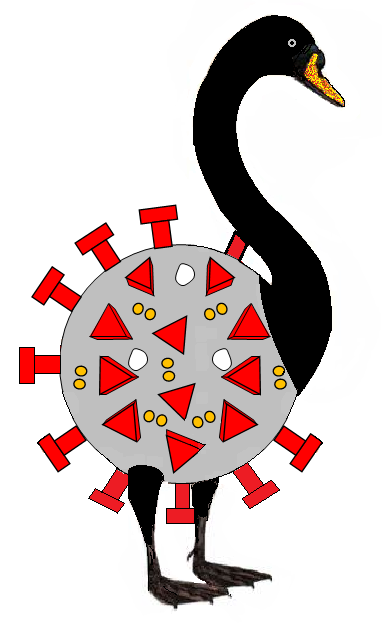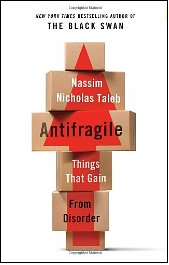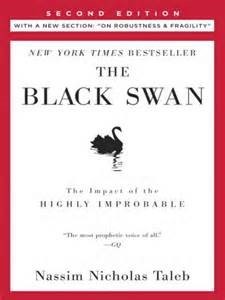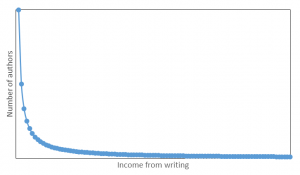Historians will look back, I believe, at the Coronavirus Pandemic of 2020 as a ‘black swan’ event. For the rest of us, memories of this may fade, but they’ll never go away.

What’s a black swan event? According to Nassim Nicholas Taleb, author of The Black Swan: The Impact of the Highly Improbable, a black swan event has three properties: (1) It is a surprise; (2) It has a major effect; and (3) After it occurs, people consider it to have been inevitable.
We’re still in the middle of the pandemic and the accompanying economic disaster, but I believe they both meet all three criteria. Some have written articles denying this, on the basis of Criteria (1). Medical scientists had warned us about pandemics, they say, and we’ve even had pandemics before. Novels and movies about disease outbreaks were warnings, too.
No. For most of us, the COVID-19 outbreak and the economic shutdown came as a sudden shock. If anything, those who deny this pandemic is a black swan are just proving it satisfies Criteria (3). It’s to be expected that some will claim we should have known.
Let’s get beyond that. I’m less interested in arguing about criteria than in what we do now. How do black swan events change us? How do we prepare for future ones?
When this is over, I believe most people will revert back to their pre-virus lives without much change. They might wash their hands more often, but that’s about it. They’ll go to concerts, sporting events, and church. They’ll shake hands. They’ll fly on planes.
However, for everyone now alive, this pandemic will linger on in memory. It can’t un-happen for us. We’ll think about it when we meet strangers, when we buy toilet paper, when we choose investments or apply for our next job. No matter what we do from now on, a corner of our mind will remind us of the risks we’re taking. Future generations will shake their heads at our curious hygiene fixations and risk-averse financial strategies.
For us, that small voice in our head, that conscience, represents part of the solution to the Black Swan problem. As Taleb recommended, you should make decisions that allow you to exploit positive events while still guarding against black swans.
In other words, hug your family, but fist-bump strangers. Go to the basketball game, but don’t scratch that nose itch until you’ve washed your hands. Invest some of your portfolio in stocks, but keep some money in safer accounts. Take that job aboard a cruise ship, but keep your list of grocery store contacts.
Despite their low probability, black swan events happen. The Stock Market Crash of 1929, Pearl Harbor, the Kennedy Assassination, 9-11, and Coronavirus 2020 are all examples, but more await us in the future. They’ll be unpredictable, significant, and, afterward, strangely inevitable.
You can’t plan for what you can’t predict. But reserving a few resources for imaginable worst-case scenarios might prove wise if the worst case comes to pass.
One more thought about black swan events. As a species, we’ve survived them all. No matter what the future hurls at us, we’ll be inventive and adaptable. We’ll fight our way through. We’ll come out the other side—roughed up, perhaps—but standing tall.
Welcome to the battle for the future. In this corner, you’ve got a black swan. And in this corner, the entire human race. Let’s get ready to rumble! With all my money bet on the humans, I’m—
Poseidon’s Scribe



